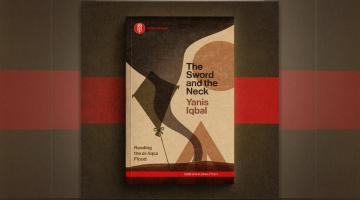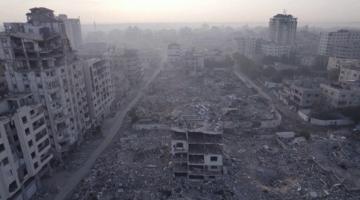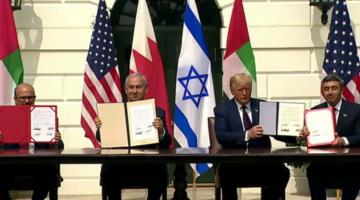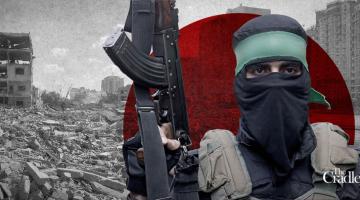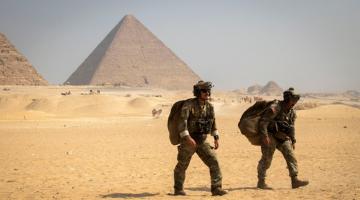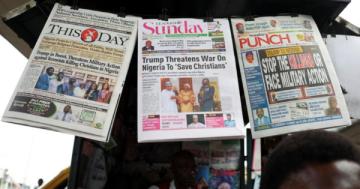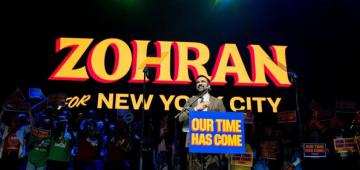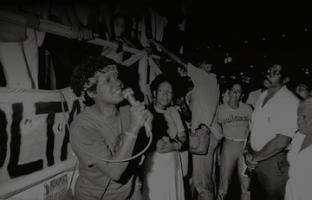Zionist massacres are livestreamed to the masses in high definition and still nobody can stop them.
Originally published in Steve Salaita.com
Not so long ago there was a common theory to which I subscribed: that in an era of mass media and instant streaming the Zionist entity is unable to fully displace or wantonly slaughter Palestinians because of the scrutiny it would invite. You can get away with a lot worse, the thinking goes, if nobody is watching.
It’s a theory I’ve considered over the years while working in the fields of Native American and Indigenous Studies. From the beginning of this work, over 25 years ago, interlocutors stressed the importance of differences in comparative analyses. One crucial difference between Euro-American and Zionist colonization, everyone agreed, was the timeline. While colonization is ongoing in North and South America, often in situations of great struggle or tension, settlement of the so-called New World precedes the conquest of modern Palestine by a few centuries.
Those few centuries account for significant developments in jurisprudence, technology, communications, rhetoric, mobility, demographics, and diplomacy. Certain of these developments abet Zionist colonization, but others create limitations that Euro-Americans didn’t need to worry over—global outrage or international law, for example.
The other notable difference is one of scale. Even limiting ourselves to the borders of the contiguous United States, the landmass subject to Euro-American settlement is much larger than historic Palestine (along with the surrounding areas that Zionists fantasize about). Variations of geography force us to think about the impact of physical space on conquest, and, in North America, the intricacies of conquest involving hundreds of nations.
The points of comparison nevertheless grow stronger with time.
For instance, it has become clear during the past two months in the Gaza Strip that the Zionist entity is plenty capable of equaling the belligerence of the American frontier, an era of wholesale ethnic cleansing thought to be a feature of history. (“It could never happen today,” people sometimes would foolishly declare.) Colonial atrocities of the past—Wounded Knee, Sand Creek, the Trail of Tears—are now everywhere in evidence. The Zionist entity is carrying out a kind of primitive violence with modern technology.
This violence fills our computer and television screens. People around the world get minute-by-minute accounts of massive destruction and widespread murder. Certain images have become horrifyingly familiar: throngs of refugees queuing for bread; ambulances dodging tank and machine gun fire; hospitals in disarray; once-dense neighborhoods transformed by aerial bombardment into kilometers of rubble. We scroll through photos of men blindfolded and stripped to their underwear, lined up on the ground like antiquities in a museum courtyard. The scrolling continues into pictures of white body bags in shallow trenches and then into videos of little girls and boys screaming trauma into the ruins of their childhood. We are perhaps the first generation to witness genocide in real time. History books about the horrors of the past are written every time somebody opens social media.
The theory that bearing witness will curtail Israel’s ability to act on exterminationist fantasies no longer holds. Information and knowledge, it turns out, aren’t reliable bulwarks against genocide. Impunity isn’t beholden to disapproval.
What does it tell us that the Zionist entity can conduct this genocide in high definition, with no credible deniability and amid condemnation from all corners of the world?
It tells us that people serious about Palestinian liberation were right to despise the so-called radicals who laundered Zionism through celebrity activism, academic credentialism, NGO astroturf, and the Democratic Party. An entire class of influencers arose from Bernie Sanders’ failed presidential campaigns. They populate hundreds of podcasts and livestreams. They wasted incalculable energy and resources promoting a man who would go on to repeatedly justify the bloody campaign in Gaza. Now they deplore Sanders after having extracted all the clout appended to his name and having ostracized the outliers who accurately tagged him as a fraud from the get-go. It was the most noteworthy example of a timeworn practice: pursuing access to microphones and New Yorker profiles by subsuming Palestinian liberation to institutions constitutionally hostile to revolutionary politics.
It tells us that international governing bodies and legal institutions are at best useless. Despite some halfhearted hemming and hawing, the UN has been an accomplice to the Zionist entity’s genocide. The ICC will never see an American, Israeli, or EU war criminal on its docket. The Arab League pretends to care, but its performance is entirely unconvincing. Such institutions have been captured by imperialism since their inception.
It tells us that “dialogue” was always a pathway to submission. The idea that Israelis and Palestinians should dialogue as a means to peace was always dubious if only because dialogue can’t work in situations of disparate power. But now, with Israelis overwhelmingly in favor of the genocide, it should be clear that Palestinians never had anyone to dialogue with in the first place.
It tells us that Western academe was completely unprepared for the material demands of decolonization despite its popularity as a professional brand. Many among the intellectual class, including scholars of Fanon like Adam Shatz and Lewis Gordon, either disavow or diminish anticolonial resistance or ignore it altogether. Academe is where resistance goes for processing and beautification after it has been completed. It’s rarely a place for the organizing stage.
It tells us that deterrence isn’t a game of strategy played by eggheads on the internet, but an onerous project conditional on guns and rockets. Academics generally are too scared to say it, or, in an object lesson on arrogance, don’t actually believe it, but a cache of weapons will always be more important than a conference panel.
It tells us that electoralism is a sham. There is no meaningful ideological variance among U.S. politicians at the national level. In practice, they range from center-right to fascist. In the upcoming presidential election, for example, voters will get to decide between two scarcely-functional old farts with histories of sexual misconduct and a complete devotion to Zionist genocide.
It tells us that racism isn’t simply an attitude, for its origin is social violence and eventually it will become physically violent in order to perform its civic mandate. In the framework of settler colonization, racism manifests as a yearning for cultural purification through displacement of the native.
It tells us that capitalism makes death a valuable commodity. The Zionist entity isn’t merely an imperialist beachhead; it is a major player in the international weapons trade. It tests new munitions, chemicals, and surveillance technology on Palestinians. It arms reactionary forces throughout the Global South. It serves as a conduit and accomplice to U.S. policing. Because of Zionist occupation, corporations enjoy the use of human subjects as raw material for development and innovation.
It tells us that we wasted a whole lot of time trying to convince the oppressor that we are worthy of life when the oppressor cannot live without our extinction.
More than anything, it tells us that in the benighted West there is no democracy, no free speech, no legislative remedy, no human rights, no right even to be human. These are illusions people repeat in an effort to survive pervasive depravity, or myths they cynically invoke to gather the crumbs of deprivation. There is a ruling class and various iterations of the dispossessed and the dispossessed exist only to serve ruling class gluttony.
That’s why countless people can deplore a genocide zoomed into our personal devices without being able to stop it. We are not simply ineffectual in the world of policymaking; policymakers are taunting us with their depravity.
What can we do, then? It’s important to start by recognizing that the entire political class, from presidents to online pundits, has no regard for us—detests us, in fact—and is therefore never a reliable source of empathy or relief. Denizens of this class do not want our feedback; they want us to scroll through the debris of their malevolence.
Upon this recognition, the possibilities become clearer, albeit less convenient. But in the spirit of urgency, we can keep it simple: whether it happens in darkness or light, on screen or off, the Zionist entity needs to become an archive we browse as a cautionary tale, or else our future on this planet will be history.
Steven Salaita is a scholar and author.

